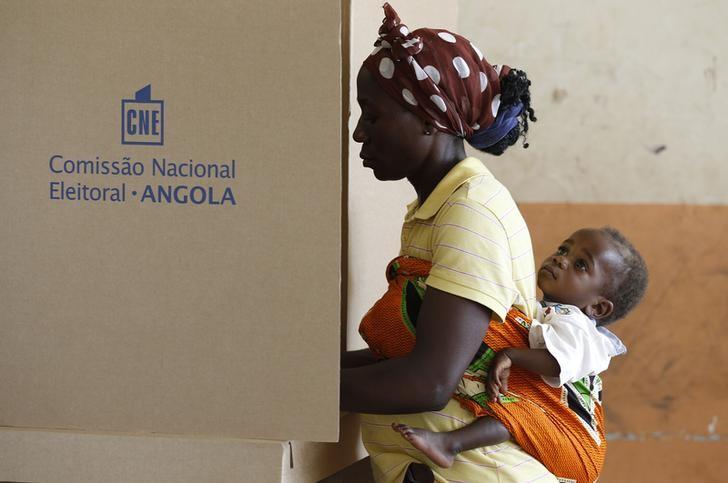The European Union has scrapped plans to observe elections in Angola next month, after Luanda failed to agree to a package of conditions, including access to all parts of the country during the poll, an EU spokesperson said on Friday.
The EU expects instead to send a smaller team of experts to assess the elections on Aug. 23, but the team will consist of no more than five people and will not provide an in-depth account of the electoral process.
“Notwithstanding positive discussions with the Angolan side, the conditions for deployment in accordance with our methodology have not been met, therefore the EU will not deploy an Electoral Observation Mission,” a spokesman for the EU’s mission in Angola told Reuters.
Angolan President Jose Eduardo dos Santos is to step down after 38 years at the helm of a country that has become Africa’s No. 2 crude producer, but will retain sweeping powers as president of the ruling MPLA party after the poll.
The party has chosen Defence Minister Joao Lourenco as its presidential candidate.
Angola’s foreign ministry and electoral commission have been informed of the EU’s decision, the spokesman said.
The foreign ministry did not immediately respond to a request for comment. Reuters sought comment from the electoral commission but did not receive a response.
The EU had looked set to send its first Electoral Observation Mission to Angola since a 27-year civil war ended in 2002. But a request from the EU that Angola sign a memorandum of understanding, which set out conditions for the observation mission, was rejected earlier this month.
Foreign Minister Georges Chikoti said the EU was invited to observe the elections, just like a number of organizations, but that no specific memorandum would be signed with it.
“We do not expect anyone to impose on us their way of looking at the elections and give us some lesson, just as we don’t hope to give lessons in terms of elections,” Chikoti was quoted as saying on July 16 in the state-controlled newspaper, Jornal de Angola.
Despite its oil wealth, most of Angola’s 25 million people live in grinding poverty and have become increasingly frustrated in recent years as low crude prices hammered growth.
Reuters



